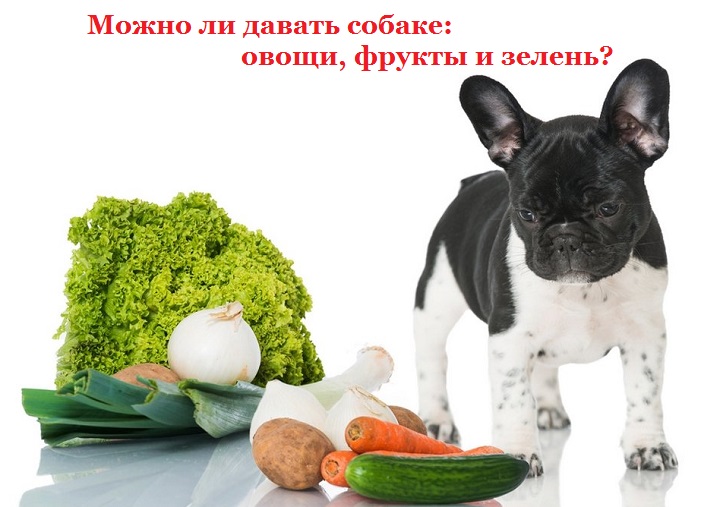In this article, we will consider whether it is possible to give dogs vegetables, fruits and herbs. And we will analyze in detail which products are permitted and which are under the strict prohibition.
Contents
- Is it possible to give dogs and puppies vegetables: what vegetables to feed and in what form?
- Is it possible to give dogs vegetables from our diet: conditionally detailed and undesirable products
- All vegetables can be given to dogs: a list of prohibited products
- Is it possible to give dogs boiled or fried onions, potato cleaning, salted or pickled vegetables?
- Is it possible to give dogs fresh herbs and which one?
- Is it possible to give dogs fruits and berries: a list of permitted and prohibited products
- Video: Can dogs give vegetables and is it necessary?
The main diet of four -legged pets consists of protein and cereals. Therefore, whether to feed the dog with meat and whether it is possible to give fish as an additional source of protein - this issue is rare for owners. And the answer more often depends on the breed of the animal and financial capabilities of the owners. A dispute occurs much more often, it is necessary and whether to give dogs vegetables, fruits, berries and herbs. But the menu should be diverse and with a full margin of vitamins. Therefore, we propose to study the list of permitted products of the vegetable and fruit menu of the animal.
Important: Dogs have no enzymes responsible for the decay of plant fiber, so vegetables and fruits should be chosen very carefully! But with their regular use, the pet better digest and absorbs the meat.
Is it possible to give dogs and puppies vegetables: what vegetables to feed and in what form?
Vegetables that should not cause the question “whether it is possible to give dogs”, they simply must be in the diet from birth:
- The leader in the benefits and digestibility is carrots. Be sure to be in the diet in dogs of any breeds. You can give from the first months of life and in any form (boiled, baked, raw, whole or crushed). Gives the body vitamin A and beta-carotene. A raw whole carrot cleanses his teeth, helps reduce itching when they change them and massages the gums, can replace the toy.

Tip: in order to better absorb useful elements, add a little vegetable oil or sour cream to the crushed root crop.
- Natural antioxidant - pumpkin. It rarely causes allergies even in puppies, despite its bright color. Normalizes the work of the intestines and liver, reduces the acidity of the stomach and acts as a prevention of constipation. You can give in boiled form by mixing small pieces with wet food, some adult pets love to bite her raw.
- The source of folic acid is a young zucchini. Extremely useful for the nervous system, increases stress resistance, normalizes the sexual cycle and does not cause allergies at any age. It is well absorbed in raw form - you just need to grate and mix with food. But no less benefit in a boiled or baked vegetable.
- Dietary and juicy cucumber. It causes a lot of controversy, because when overeating it can provoke diarrhea. But with moderate use, gives a lot of vitamins A, C and D, potassium, copper and magnesium. A whole cucumber brushes his teeth in a natural way and eliminates an unpleasant odor! Due to the high water content, it perfectly quenches thirst. At first, it is better to grate the vegetable and mix with the usual food, you need to clean the peel from the purchased product. If a negative reaction is not noticed, it is possible to give as a whole as a reward.
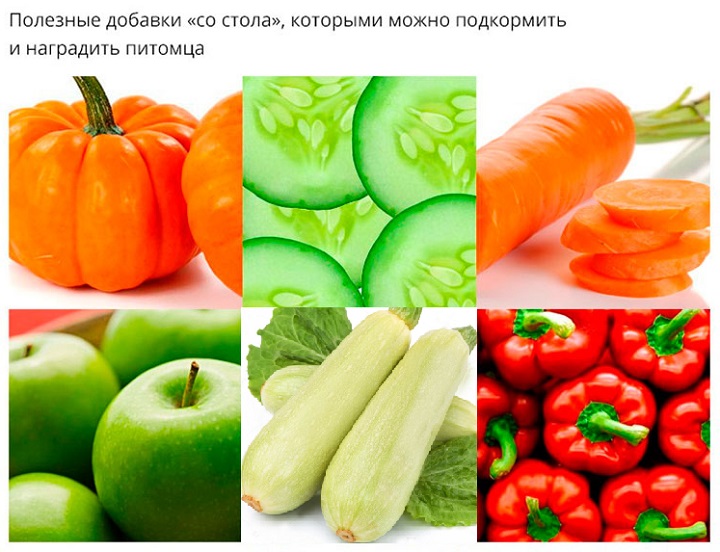
- Vegetable leader in the content of ascorbic acid - Bulgarian pepper. Also in it there are many vitamins of group B and R. Peretz strengthens teeth and bones, normalizes the exchange of amino acids. At first, it is better to give a boiled or baked vegetable, if the animal has a tendency to allergies, choose only a green variety. In no case should you give acute pepper - He causes digestive problems.
Useful and permitted in moderate quantities or, if necessary:
- Asparagus with a high fiber content. It does not cause bloating or flatulence, gives the desired share of vitamins A, E, C, and K. But when eating a large amount, it stains excrement in green and can provoke a disorder. It is advisable to give boiled form or steamed, puppies can be after at least 6 months.
- With the disease of the urinary system, cauliflower is recommended. This is the only allowed variety for dogs - it is quickly absorbed and gently affects the intestines, without causing fermentation. Give only in boiled form and in small quantities. You cannot include in the diet every day and puppies up to a year!
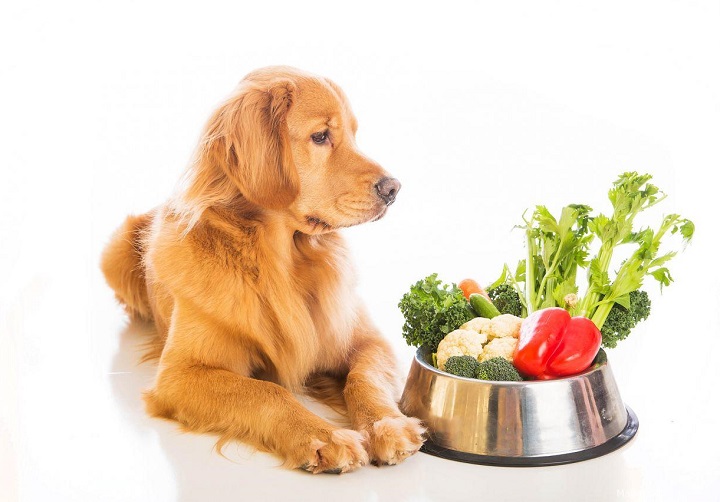
- For the normal operation of the intestines and kidneys, turnips are useful. It stimulates digestion, has diuretic and antiseptic properties. You can give in any form, but it is worth accustoming gradually. So that the animal does not choke, it is better to cut into small pieces or rub on a coarse grater. Turnip is contraindicated in diseases of the kidneys, liver and stomach, as well as to puppies up to a year.
IMPORTANT: relative turnips - radis - under the ban for dogs! It has many rude fibers, which the animal’s stomach is not able to cope with.
- Sweet potato substitute is a battery. In moderate quantities and only in boiled form, it is allowed for dogs older than six months, it is much easier to absorb than the usual potatoes. It has a lot of vitamin C and B6. It reduces the risk of cancer, but very high -calorie and can lead to obesity with constant use.
- Celery reduces the risk of heart disease and the development of oncology. You can only give crushed form, mixing with the main food. It is better to give puppies no earlier than six months later.
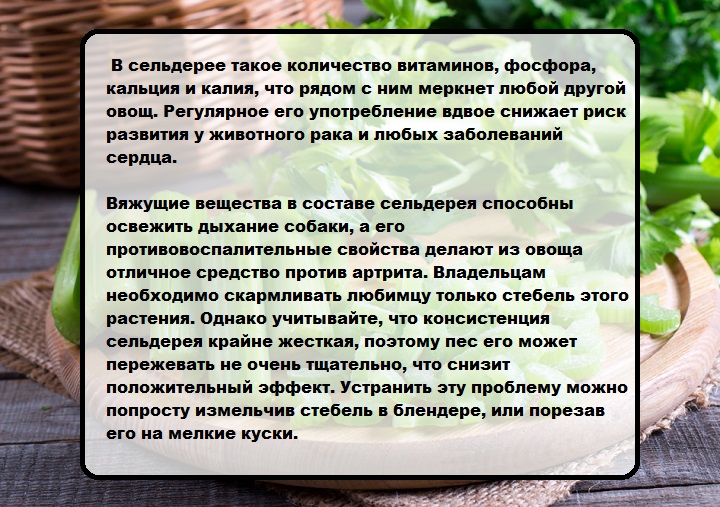
Is it possible to give dogs vegetables from our diet: conditionally detailed and undesirable products
Limited resolution vegetables:
- Hearty and beloved by many potato - Unwanted for dogs. Previously, the question of whether it was possible to give dogs potatoes, did not even arise. It was almost the second product after meat. Over the past decades, scientists have found that it is difficult for animals to digest potato fibers, they have been disturbed by the work of the small intestine. You can only give cleaned and boiled potatoes. Baked, fried or raw root crop - extremely harmful to the pet.
- Allowed dose: 2-3 times a month, in the amount of 1/3 of the total daily volume of food.
- Tomatoesuseful for teeth. They clean the raid and protect the gum. But often causes allergies in some pets, and in large numbers - a disorder. Vegetables from the store are especially dangerous in which the high pesticide content, and unripe fruits. Home tomatoes can be given in a small amount in the form of a delicacy.
- Allowed dose: depending on the size of the pet, 1-2 tomatoes are 2 times a week. In order not to load the stomach, mix tomato puree with other products; It is better to use boiled or stewed - there will be no less benefit.
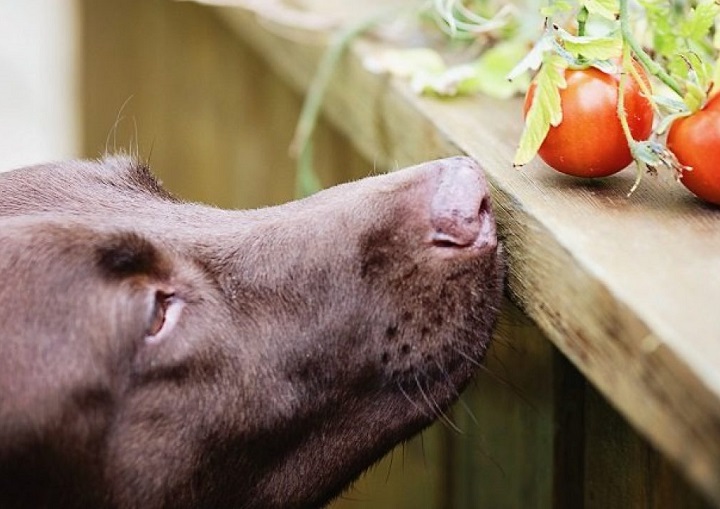
- Beetit rarely causes allergies in dogs, but often changes the color of the “fur coats” in light pets. In addition, it is slaughter, especially in raw form. But the beetroot top is very useful.
- Allowed to use: lto give them a boiled and crushed form, no more than 1 time per week.
- Harmless and useful at first glance broccoli For dogs is dangerous. Due to the large content of isothyocyanate-it is toxic for animals.
- Allowed dose: 5% of the daily amount of food, no more than 2 times a month.
- Ginger- This is a natural antiseptic and an assistant for the digestive system. But not with frequent use.
- It is allowed to give: only in chopped form, mixing with another food, no more than 1/3 tsp. For small breeds or young puppies, only a couple of fibers are enough.
- Eggplantit is contraindicated for dogs who have kidney problems. You can give healthy pets only in boiled or baked form. And, despite the high content of vitamin and macro elements, you should not get carried away - it is better to replace pumpkin or zucchini.
- Allowed dose: No more than 10% of the total amount of food.
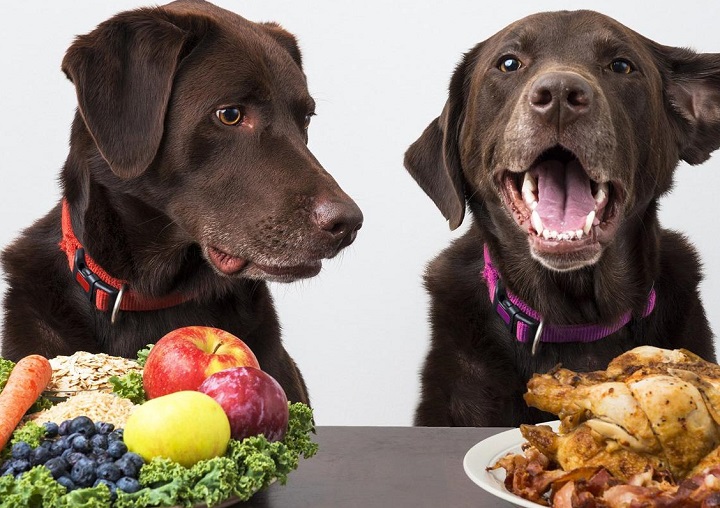
All vegetables can be given to dogs: a list of prohibited products
These vegetables are not even included in the category “can dogs can be given”, but are under the strict prohibition:
- Sweet corn. In any form, it is prohibited - it is not at all absorbed, it can cause intestinal obstruction and provoke allergies.
- Useful for immunity onion and garlicfor a dog body, dangerous. In large doses or with often use, they can cause severe poisoning and lead to the development of anemia. The stomach of the animal is not adapted to digest acute foods!
- Cabbagein any form, causes pain in the stomach, bloating and gas formation in dogs. Due to possible problems with the intestines, the benefits of the vegetable are not justified.
- Any legumes- beans, peas or beans - do not digest in dogs and do not bear any benefit to the body. Often cause flatulence.
- Mushroomsheavy for the human stomach, and their animal fibers cannot be at all. They contain heavy salts and toxic elements, and chitin negatively affects the digestive system.
- Olives, artichoke And other exotic is not for a dog diet. Otherwise, expect vomiting, diarrhea or constipation, as well as long digestive problems.
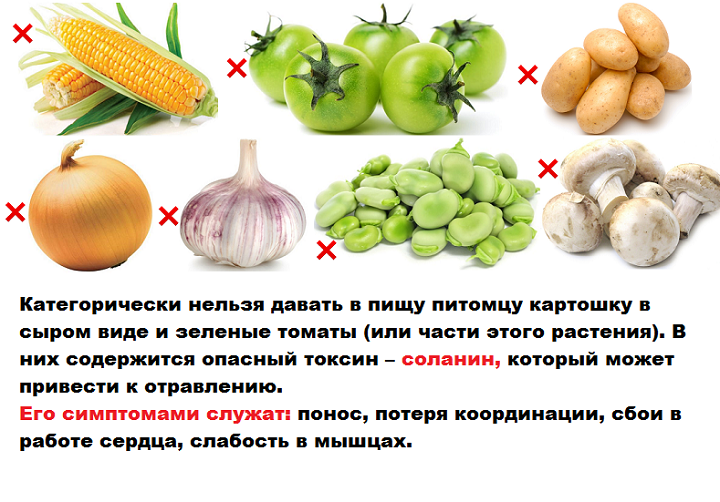
Is it possible to give dogs boiled or fried onions, potato cleaning, salted or pickled vegetables?
Rather, even to formulate the question not “can dogs be given”, but “why is it impossible”:
- Boiled or fried onions. Despite the fact that during heat treatment, hazardous substances are destroyed-dimethyl sulfoxide and disulf, but sodium remains n-propyl thiosulfate. And it acts on the dog’s body in a similar way - negatively affects red blood cells and causes anemia.
- In no case should the dogs give the peel from potatoes, Even in boiled form! Potato cleaning is not absorbed by the animal organism (a lot of starch under the peel) can cause vomiting and flatulence.
- It is strictly forbidden to give salted cucumbers, pickled vegetables and other pickles! In them, the increased salt content, the animal decreases charm, may have problems with the kidneys!
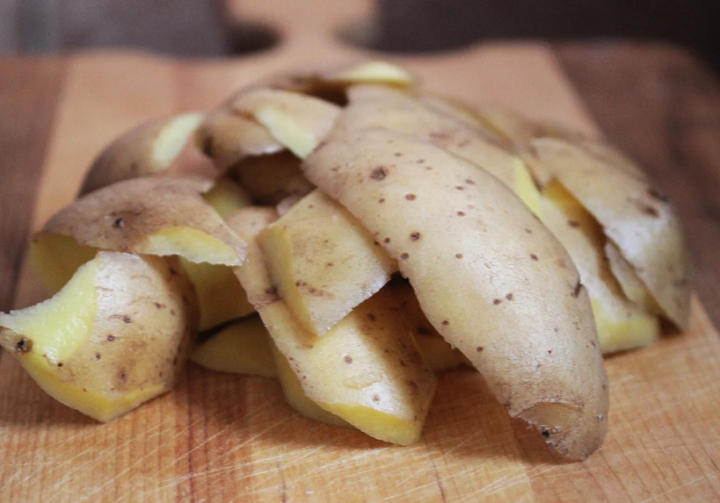
Is it possible to give dogs fresh herbs and which one?
Greens are very useful, quickly digested and easily absorbed, extremely rarely causes allergies and does not lead to obesity. But when the owners begin to ask the question, whether it is possible to give dogs this or that greens, they rarely find a definite answer.
Important: greens are a natural antioxidant and antiseptic, improves the taste of food and stimulates the appetite in animals. Allowed for use from birth.
What greens can and should be given to dogs:
- parsley (pregnant and nursing animals, as well as if there are problems with the kidneys, it is contraindicated)
- dill
- spinach (often you should not get carried away)
- basil
- salad leaves
- the leaves of young nettles
- dandelion leaves
- mint and lemon balm for freshness of breath
Important: the permissible dose is no more than 1 tsp. It is better to give fresh and crushed form (so more beneficial substances are preserved), mixing with the main food.
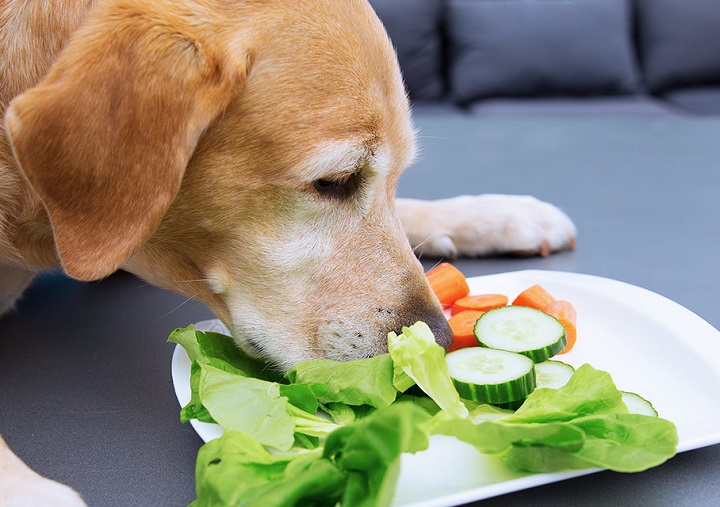
It is forbidden to give:
- sorrel, because Sharpic acid irritates the stomach. When eating large doses, vomiting, disorder, gastritis and even an ulcer may appear;
- revenge, since it contains oxalates that negatively affect the functioning of the nervous and digestive system.
Tip: it is periodically useful to give sea greens - nori and seaweed. It improves the quality of the wool and is the prevention of iodine deficiency. But algae are recommended only to adult pets.
Is it possible to give dogs fruits and berries: a list of permitted and prohibited products
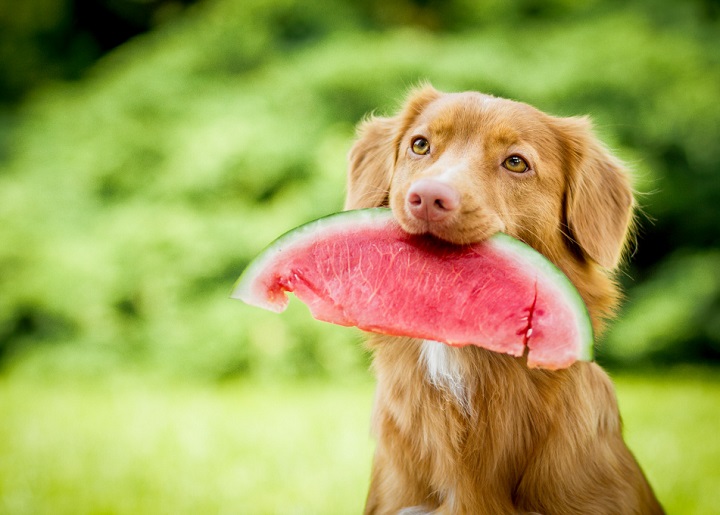
Fruits and berries even more often fall into the discussion - can dogs be given in what form and in what quantity is allowed? And really a lot of nuances in the fruit menu for dogs.
You can and even need to be given periodically:
- apples useful for digestion and not dangerous even to older dogs (they are easily absorbed);
- pear reduce the risk of heart attack by about 2 times;
- melons perfectly quench thirst and gently stimulate intestinal motility;
- watermelon You can give dogs unlimited quantities, but only in the season, and even better homely. By the way, there are many easily digestible minerals in the crust;
- rowan - This is a storehouse of trace elements, easily absorbed by pets;
- gooseberry It also rarely causes a negative reaction;
- blueberry Very useful. But add a few berries to the food to kill the aftertaste.
Important: berries and fruits are not the basis of dog food! You can give up to 50-70 g of delicacy no more than 2-3 times a week. Since by nature they are meat-eaters, the fruit and berry menu should be accustomed gradually, from a young age. But puppies specially do not need to introduce fruits, it is enough to offer and look at the reaction of the pet.
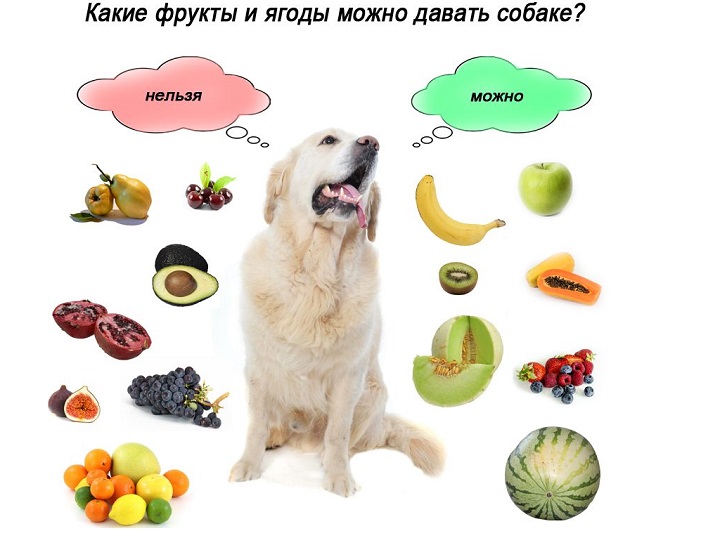
Conditionally permissible fruits and berries:
- bananas They will give a lot of potassium, but a rickety product and in large doses can cause a disorder. But the green fruit will lead to constipation;
- plum You can only unripe and without bones. Otherwise there will be food disorder;
- apricots They are very weak, and the bones cause intestinal obstruction;
- kiwi also slamms in large doses;
- strawberries, raspberries, blackberries, cherries and cherries You can give, but if the pet himself asks. They do not carry out values \u200b\u200bfor the animal, although harm either. In some breeds, these berries cause allergies and intestinal indigestion;
- papaya It will stop the diarrhea, but with constant use there will be the opposite effect. In addition, the fruit increases blood sugar;
- persimmon helps to normalize a chair, so you can give only with strong constipation;
- pineapple, mango And other exoticism are considered useful, but with a very high percentage of allergen.

It is worth completely abandoning:
- grenade Due to the large number of bones that are not digested in the animal's stomach. The dog immediately has pain in the abdomen and vomiting begins;
- persian provoke diarrhea and lead to the accumulation of cyanide in the body;
- quince Not only acidic, but also dangerous to the life of the animal. It provokes abundant vomiting and violations in swallowing;
- grapes and raisins cause renal failure (not in all breeds);
- avocado Contains a lot of peach, which causes failures in the digestive system;
- citruses Irritate the intestines, cause vomiting and diarrhea. Often provoke allergies.
Important: jam or jams for dogs are strictly contraindicated! They have a lot of sugar, which is unacceptable to the animal organism, and there is no benefit.
We also recommend reading:
- Do dogs distinguish color?
- How to make a dog lounger with your own hands?
- Beef shirt for dogs: benefit and harm
- 9 best means for cleaning the ears in dogs
- Why do small dogs tremble and shake?

